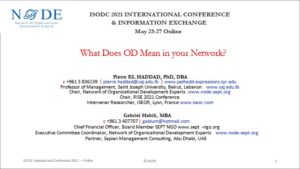
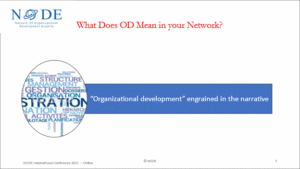
Organizational development has been in the Lebanese national narrative since as long as one can remember.
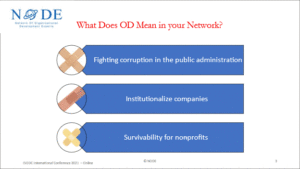
OD in Lebanon is synonymous to fighting corruption in the public administration, to institutionalize companies in the private sector, and survivability for non-profits.
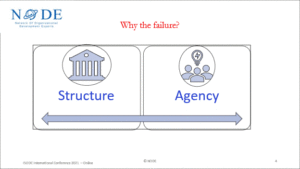
However, despite this ingrained belief and several wholesale attempts to do so, we have failed miserably at the public administration level, and had only few fine examples of success both in business and non-profits.
Why? Because the attempts have always addressed the structural, leaving agency behind.
As OD people we have come to know that it is the tandem of the structural and the behavioral that permit organizations to develop sustainably.
Where should the OD profession go, and what is the role of OD professional in the landscape?
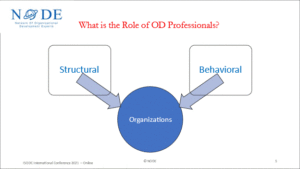
The diagnosis of the OD situation in Lebanon is well understood. Our role as OD professionals is very clear. It is to promote the notion of parity in terms of importance and weight between the behavioral and structural aspects of OD, as well as to highlight the benefits of integrating behavioral change in organizations, public administrations, and societies.
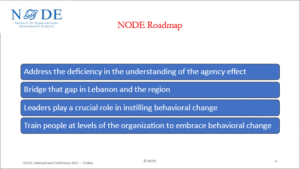
Our roadmap should focus on how to address the present deficiency in the understanding of, and in the emphasis accorded to the agency effect in public administrations and institutions.
This will be one of the main tasks to be addressed by NODE not only in Lebanon, but also in the region, and at all levels of organizations.
Leaders and people at the top of echelons play a crucial role in instilling behavioral change in their organizations as organizational culture starts at the top.
People at all levels of organizations should be trained and coached on how to embrace change and to be shown the derived benefits to them primarily, to their organizations secondly, and lastly to society.
For behavioral change to succeed, all three elements of the Triple C theory have to converge, namely, Conviction, Capability, and Craving to effect change.
For change to succeed, the individual and the organization have to have the:
- Conviction in the transformation program and in the need to change.
- Capability to change. Having a blueprint of the best organizational design, if individuals and/or the organization do not have the required skills, ability, and knowhow to change, then organizational change could fail.
- Craving to change and to work whole-heartedly and with passion. Without such Craving and commitment, any organization would not reap the full benefits of change.
Our role is to help equip individuals and organizations with the Triple C theory, so they become the champions of behavioral change. Applying both, behavioral and structural change is a recipe for a successful organizational development implementation.
